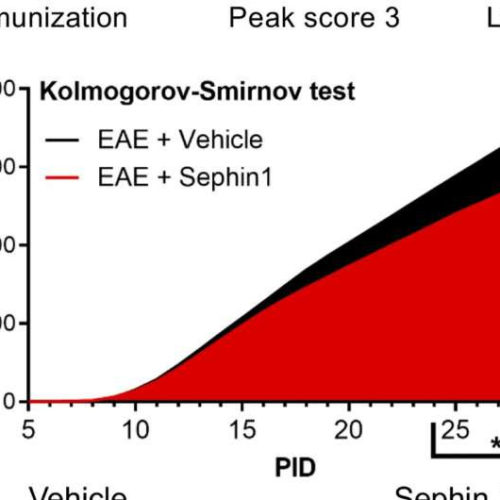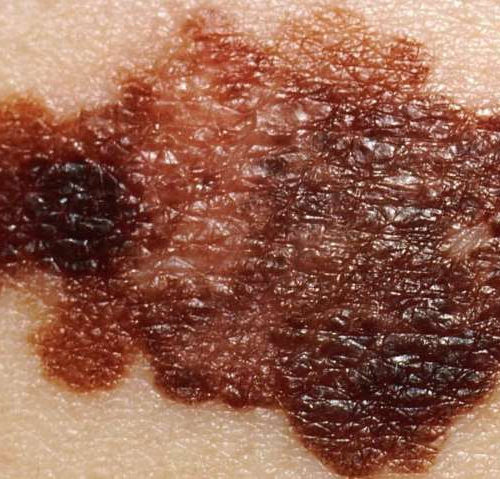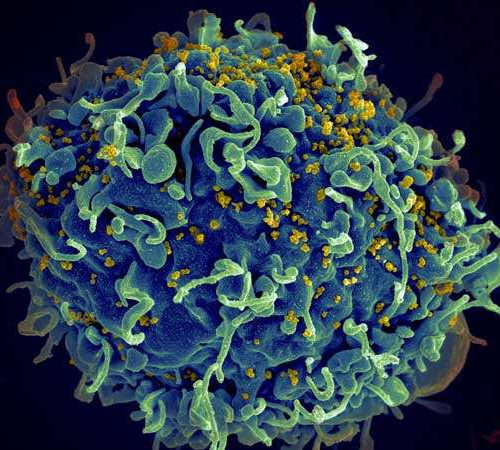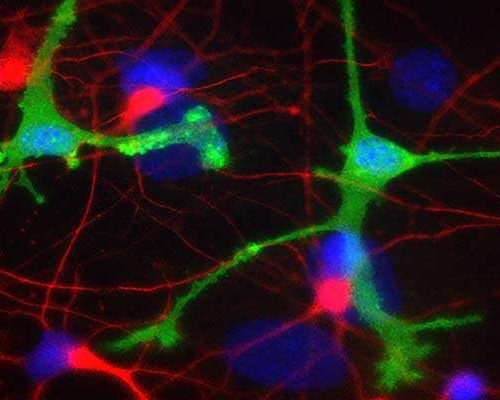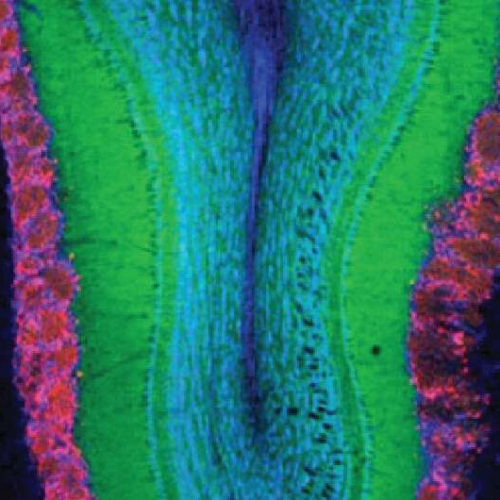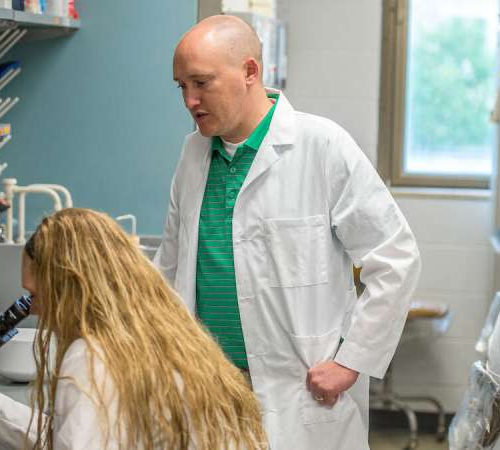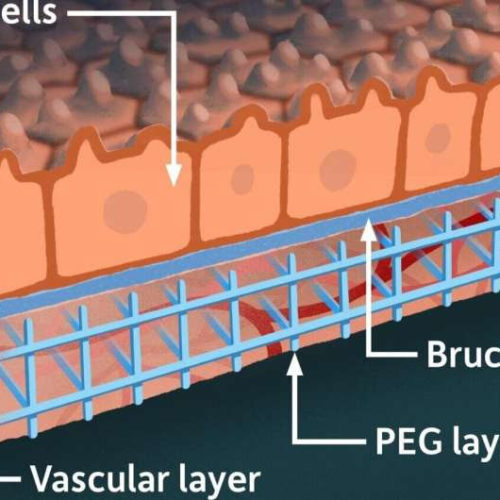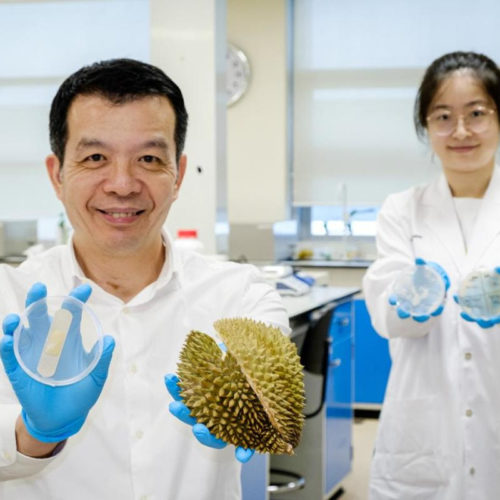by Will Doss, Northwestern University Sephin1 treatment enhances remyelination after inflammatory demyelination. (A) Cumulative clinical scores of C57BL/6J female mice immunized with MOG35-55/CFA to induce chronic EAE, treated with vehicle (n = 7) and 8 mg/kg Sephin1 (n = 7) from the peak disease. *p<0.05. Significance based on Kolmogorov-Smirnov test. (B) Representative EM images of axons in the spinal cord...
Dual drug approach to treat deadly melanoma
by Centenary Institute Credit: Wikimedia Commons/National Cancer Institute Research from the Centenary Institute has found that a new dual drug approach could offer up a highly effective treatment strategy for melanoma, the most serious form of skin cancer responsible for more than 1,700 deaths each year in Australia. Reported in the Journal of Investigative Dermatology the findings have the...
Microrobots fight brain tumors in mice
By Theresa Gaffney March 24, 2021 Reprints Scientists have created a microrobot that can pass the near-impenetrable blood-brain barrier to treat brain tumors in mice, they report in a new study in Science Robotics. Researchers at the Harbin Institute of Technology and Harbin Medical University in China were able to combine the natural abilities of neutrophils — bacteria fighting...
Another use for Metformin
by University of North Carolina Health Care HIV infecting a human cell. Credit: NIH A team led by scientists at the UNC School of Medicine discovered an important vulnerability of the AIDS-causing retrovirus HIV, and has shown in preclinical experiments that a widely used diabetes drug, metformin, seems able to exploit this vulnerability. The scientists, whose...
Experimental antibodies for Parkinson’s, Alzheimer’s may cause harmful inflammation
by The Scripps Research Institute Scientists at Scripps Research find evidence that antibody treatments in clinical trials for neurodegenerative diseases may trigger an inflammatory response that erodes their positive effects. Pictured: Dopaminergic neurons in red and microglia in green. Credit: Lipton laboratory, Scripps Research A team led by scientists at Scripps Research has made a discovery suggesting that experimental antibody therapies for Parkinson’s...
Neural code determines instinctual responses to attractive or aversive odors
by Stowers Institute for Medical Research Fluorescent immunochemistry staining of an olfactory bulb slice from mouse. Credit: Qiang Qiu, PhD, Stowers Institute for Medical Research Since the beginning of the pandemic, a loss of smell has emerged as one of the telltale signs of COVID-19. Though most people regain their sense of smell within a matter of weeks,...
Protein rewires metabolism to block cancer cell death, may allow cancer spread
by University of Notre Dame Zachary Schafer working in the lab. Credit: University of Notre Dame One specific protein may be a master regulator for changing how cancer cells consume nutrients from their environments, preventing cell death and increasing the likelihood the cancer could spread, a study from the University of Notre Dame has shown. The...
Lab model offers hope for macular degeneration patients
by University of Rochester An illustration of the lab model that mimics the part of the human retina affected in macular degeneration. The model combines stem cell-derived retinal tissue and vascular networks from human patients with bioengineered synthetic materials in a 3D “matrix.” Credit: University of Rochester illustration / Michael Osadciw Age-related macular degeneration (AMD), which...
Amazing possibilities of using artificial intelligence in pathology
Reviewed by Emily Henderson, B.Sc. Mar 9 2021 Artificial intelligence can already scan images of the eye to assess patients for diabetic retinopathy, a leading cause of vision loss, and to find evidence of strokes on brain CT scans. But what does the future hold for this emerging technology? How will it change how doctors...
Germ-killing, wound-healing, low-cost bandage made from durian husks
By Ben Coxworth March 26, 2021 Prof. William Chen (left) holds up one of the hydrogel bandages and a durian husk, while PhD student Cui Xi displays agar plates showing the dressing’s antibacterial effectNTU Singapore Although not a huge seller everywhere, durian fruit is consumed in great quantities in countries like Singapore. Scientists there have now developed...

